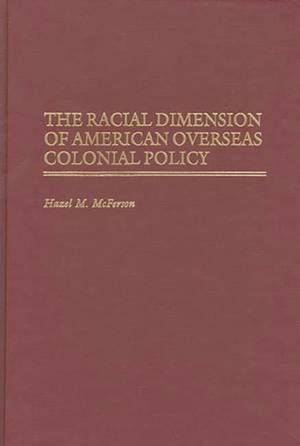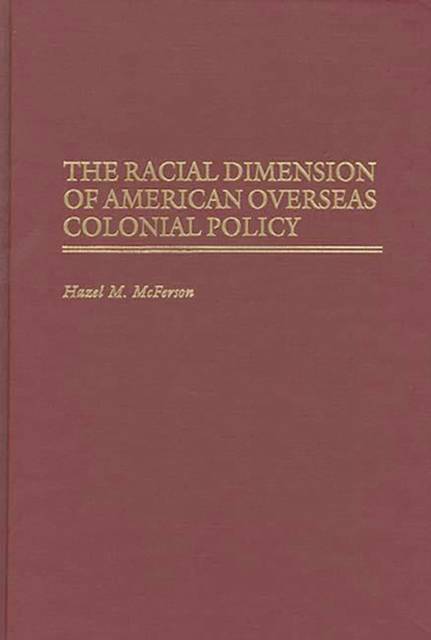
Bedankt voor het vertrouwen het afgelopen jaar! Om jou te bedanken bieden we GRATIS verzending (in België) aan op alles gedurende de hele maand januari.
- Afhalen na 1 uur in een winkel met voorraad
- In januari gratis thuislevering in België
- Ruim aanbod met 7 miljoen producten
Bedankt voor het vertrouwen het afgelopen jaar! Om jou te bedanken bieden we GRATIS verzending (in België) aan op alles gedurende de hele maand januari.
- Afhalen na 1 uur in een winkel met voorraad
- In januari gratis thuislevering in België
- Ruim aanbod met 7 miljoen producten
Zoeken
Omschrijving
Beginning in 1898, the United States won overseas colonies as the spoils of the Spanish-American War: Puerto Rico, the Philippines, and Cuba. Guam and Hawaii were also acquired in that year, and in 1917, the Danish Antilles became the United States Virgin Islands. The racial heritage of the territorial inhabitants paralled that of nonwhite groups in the United States: Native Americans, Africans, Asians, Hispanics, and mixed-race people. The nonwhite race of domestic and overseas colonial people established important links between American domestic racial policies and the racial policies and the racial dimension of American overseas colonies. This book is about these links, as shaped by the prevailing racial tradition and social structure in the United States itself. Crucial to examining these links is the little-known role of Booker T. Washington in shaping American overseas colonial policy. It is argued that following colonial acquisition at the turn of the century, the American racial tradition was exported to overseas territories, thereby largely determining colonial policy and administrative practices, the nature of social and racial conflict, and the direction and pace of political evolution in the territories.
Specificaties
Betrokkenen
- Auteur(s):
- Uitgeverij:
Inhoud
- Aantal bladzijden:
- 208
- Taal:
- Engels
- Reeks:
- Reeksnummer:
- nr. 33
Eigenschappen
- Productcode (EAN):
- 9780313289965
- Verschijningsdatum:
- 23/09/1997
- Uitvoering:
- Hardcover
- Formaat:
- Genaaid
- Afmetingen:
- 163 mm x 244 mm
- Gewicht:
- 512 g

Alleen bij Standaard Boekhandel
+ 322 punten op je klantenkaart van Standaard Boekhandel
Beoordelingen
We publiceren alleen reviews die voldoen aan de voorwaarden voor reviews. Bekijk onze voorwaarden voor reviews.









